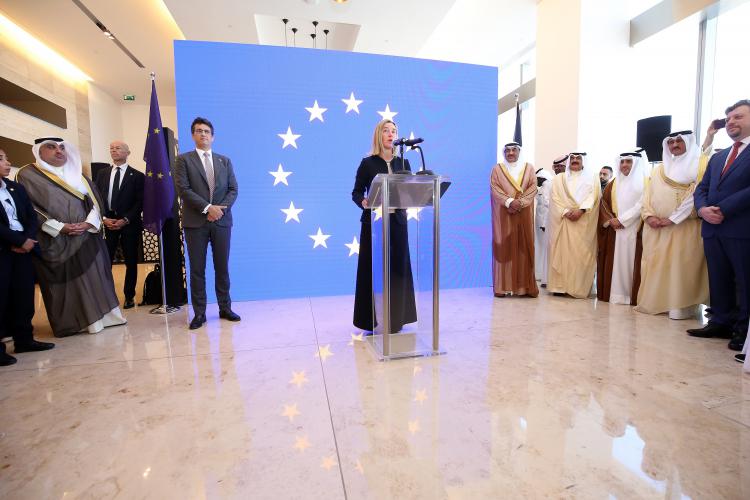- Negotiations

The European Union and the Gulf Cooperation Council signed an Economic Cooperation Agreement in 1988 which laid the framework for the elaboration of a bilateral free trade agreement between the two regional blocs. Formal negotiations began in 1990 and are still not concluded.
While the EU has powerful economic interests in liberalising investment rules in the Gulf States, so that EU corporations may participate directly in the region’s oil, banking, telecoms, port services and other industries, political issues have been publically blamed for blocking agreement. These include demands from the EU with regards to fulfilling standards of democracy and human rights, as well as clauses on cooperation against terrorism and weapons of mass destruction. Human rights groups, such as the International Federation for Human Rights, have urged the EU to insist on respect for freedom of press, women’s rights and labour rights of migrant workers in the Gulf countries in return for any trade concessions granted through the FTA.
At the end of 2008, the GCC formally announced it was suspending the trade talks due to the EU’s insistence on political demands.
last update: May 2012
photo: European External Action Service - EEAS/CC BY-NC 2.0
1-Mar-2005
UNED
After several years of being blocked, the signing of the EU-GCC FTA seems imminent. At the same time, the US is launching an ambitious proposal for a US-Middle East Free Trade Area in 2013, with Bahrain being the last country to adhere to a list that already includes Morocco and Jordan.





